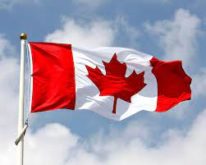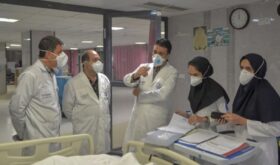Al-Monitor – Rumor is already spreading in Iran’s political circles about two former conservative presidential candidates’ determination to run in the 2020 parliamentary elections, a highly important vote that could help clarify the blurriness of what may be ahead in the 2021 presidential polls.
Ebrahim Raisi, who was the primary candidate of the conservatives in the 2017 presidential elections and who lost to incumbent moderate Hassan Rouhani, is rumored to be back on the stage to once again test his popularity on the political stage.
Prior to the 2017 elections, Raisi was rarely involved in political and partisan debates and issues. However, it has always been crystal clear for most observers in Iran where his roots lie.
Raisi spent most of his career in Iran’s judiciary and was the deputy chief justice from 2004 to 2014, though his position was weakened under current judiciary chief Sadegh Amoli Larijani. In an unexpected appointment by Supreme Leader Ayatollah Ali Khamenei, Raisi was named in March 2016 the custodian of the holy shrine of the eighth Shiite imam, gaining control of one of the wealthiest foundations in Iran. With his power rising due to his position at the shrine, conservatives gained a new face to put forward for the 2017 elections, leading to his nomination.
Conservatives put all their efforts behind Raisi, and they even pressured the other main presidential candidate, Mohammad Bagher Ghalibaf, to withdraw in favor of Raisi. His defeat was costly for him, and many considered it to be the end of Raisi’s dream of rising to the top echelons of the Islamic Republic.
Now there is intense speculation in Reformist media, and it has even been cited by a number of conservative figures, that Raisi is planning to enter the race for the next parliamentary elections. Mohammad Hosseini, a senior member of the Popular Front of Islamic Revolution Forces — a conservative group known by its Persian acronym, JAMNA — said Jan. 31, “Mr. Raisi’s willingness to enter the elections by relying on the campaigns he has [engaged in] in the provinces is a possibility.”
There are signs that point to this direction, though they aren’t necessarily limited to political objectives related to the 2020 elections. Following Rouhani’s re-election, Raisi’s media team did not wane but rather kept working and was even strengthened. He is continuously going on trips to rural areas of the country, helping quake-affected people and appearing on TV. These actions are taking place with effective media coverage. In this vein, Raisi has appointed Seyyed Nezamuddin Mousavi, the former head of the hard-line Fars News Agency, as the new head of his media team. Mousavi’s top media aides have also been brought onboard.
Moreover, Raisi’s recent trip to Lebanon’s border with Israel was seen by many as an electoral stunt geared toward attracting attention to his stance as well as securing the support of the religious class in Iran. One source who used to work for the late Ayatollah Abbas Vaez Tabasi, the predecessor of Raisi at the shrine, told Al-Monitor on condition of anonymity that Tabasi engaged in the same kind of trips as Raisi, but he never allowed such media coverage. In contrast, Raisi’s trip was criticized by a number of Reformist parliament members who referred to it as “against the national interest.”
Against this backdrop, a report on the Reformist Nameh News on Jan. 20 hinted that Raisi is aiming for the speakership — which even if true, is far from guaranteed if he enters the race for parliament. Indeed, the speaker is chosen based on the composition of the parliament, which holds internal elections. Thus, despite speculation about his political ambitions, it may be too risky for him to lose one of the most influential positions in Iran for an unknown future in parliament.
Conservative analyst Nasser Imani told Iranian media on Jan. 26, “Given the position Raisi has, he won’t run in the parliamentary elections. … [He won’t run in an election] in which he may not be elected as parliament speaker and then becomes a regular [parliament member].”
Meanwhile, there are reports that Ghalibaf — who has unsuccessfully run for the presidency three times — is also setting his sights on parliament. Hamid-Reza Fouladgar, a conservative member of parliament, told local media on Feb. 17, “It is not unlikely that Ghalibaf and [former hard-line presidential candidate Saeed] Jalili are thinking about [running] in the parliamentary elections. Some of these figures can show their abilities in parliament.” After 12 years, Ghalibaf was recently replaced as Tehran’s mayor by Mohammad Ali Najafi, a Reformist figure close to Rouhani. Ghalibaf is also a war veteran who served as national police chief and commander of the Aerospace Force of the Islamic Revolutionary Guard Corps.
In the run-up to the May 2017 elections, Ghalibaf was pressured by JAMNA to withdraw in favor of Raisi. He eventually did, albeit he was apparently upset by it — a sentiment conveyed by figures such as Hossein Ghorbanifar, a close adviser to Ghalibaf who stated five days after the elections that “if Mr. Raisi had withdrawn in favor of Mr. Ghalibaf … the election could have gone to the second round.”
Explaining one of the reasons behind the Ghalibaf team’s anger with Raisi, Hassan Ghafourifard, a well-known moderate conservative figure, said Feb. 13, “If Mr. Raisi had chosen Mr. Ghalibaf as his VP immediately after his withdrawal [from the race], the situation could be different and his votes could have been higher, but this issue caused a group of Ghalibaf’s supporters not to come behind Raisi and not to vote for him.” However, the fact of the matter is that Ghalibaf’s harsh attacks and accusations against Rouhani seemed to have backfired, with his votes decreasing in the weeks leading to the polls.
Now, for the first time after the bitter May 2017 vote, rumors are swirling in Iran that Ghalibaf wants to try his luck in the 2020 parliamentary elections. The prospect has repeatedly been cited by conservative figures. On Jan. 24, member of parliament Mohammad-Ali Pour-Mokhtar said, “The conservatives will surely welcome Ghalibaf’s nomination [in the parliamentary election].” He added that Ghalibaf could very well be on top of such a ticket. Mindful of the latter, a key question in such a scenario would be whether he would run on an independent ticket or along with the conservatives.
After Rouhani’s re-election, Ghalibaf called for the revamping of the conservative camp and slammed it for adopting approaches that led to consecutive electoral defeats.
If his true aim is to re-enter politics, Ghalibaf appears to be operating modestly. He recently visited Qom and met with high-ranking clerics and influential ayatollahs, a routine maneuver by all who seek to start a new round of political activity. Meanwhile, the poor performance of Reformists who are heading the Tehran municipality has been a godsend to Ghalibaf, reviving his political fortunes. In addition, he appears to have begun giving electoral speeches and repeating his electoral slogans, which observers believe will intensify as the 2020 elections approach.
According to Ghafourifard, Ghalibaf and Raisi both have good chances of winning seats in parliament. Nonetheless, all is dependent on the incumbent Reformist parliament members and their leader, Mohammad Reza Aref, who has yet to garner accolades for his leadership. As such, unless the pro-Reform lawmakers begin pursuing genuine grievances, the parliament and its speakership may soon be handed over to conservatives such as Ghalibaf or Raisi.
Found in:ELECTION CAMPAIGNS, GOVERNANCE
Rohollah Faghihi is a journalist who has worked for various Iranian media outlets. On Twitter: @FaghihiRohollah
 Shabtabnews In this dark night, I have lost my way – Arise from a corner, oh you the star of guidance.
Shabtabnews In this dark night, I have lost my way – Arise from a corner, oh you the star of guidance.



